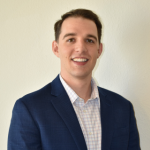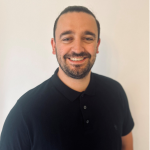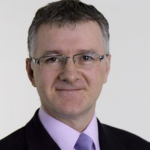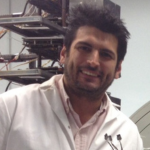Optimizing micronization and spray-drying to achieve high yields from clinical to commercial
Gain expert insight into optimizing pharmaceutical particle engineering while maintaining product quality and optimizing yield, from formulation through commercial supply
The pharmaceutical industry faces mounting pressure to deliver consistent, high-quality products whilst managing escalating costs and regulatory demands. From API development through to commercial supply, particle engineering—particularly Micronization and spray-drying —have become cornerstone technologies for addressing these challenges.
As drug formulations become more complex, maintaining precise and repeatable particle size control is key – not just for drug performance, but also for reliable, large-scale manufacturing. The decision to use one technique over the other depends on a range of factors, including the molecule’s characteristics, regulatory requirements, and scalability considerations.
What you’ll learn:
This webinar provides practical guidance for choosing the best particle engineering techniques for enhancing bioavailability and manufacturability. Our expert speakers will share real-world insights on leveraging these techniques to achieve manufacturing excellence.
Our expert speakers will share insights on:
- Key differences between micronization and spray-drying in terms of bioavailability enhancement, scalability, and manufacturability
- How to assess API properties to determine the most appropriate particle engineering strategy
- Real-world considerations for yield optimization, process scale-up, and turnaround times
- Strategies to maintain consistent product quality and reduce cost of goods across the development lifecycle
Why Watch?
Whether you’re developing novel formulations, scaling existing processes, or optimising commercial manufacturing, you’ll gain actionable strategies to:
- Selecting the right technology based on API characteristics
- Overcoming common challenges in particle engineering
- Enhancing product performance while managing cost and complexity
Other key learning points:
- Understand the key advantages of micronization as a particle engineering technique
- Explore solutions to scale, yield, and COGS for API particle engineering
- Learn strategies for optimizing micronization from clinical to commercial scale
REGISTER TO WATCH ON DEMAND >>>
OUR SPEAKERs


Thomas Lund – Product Development Manager, Catalent
Thomas Lund is the Product Development Manager at Catalent’s Center of Excellence for commercial scale spray drying in Boston. In his role, he provides technical oversight for spray drying projects from preclinical through commercialization, as well as supports spray drying technical transfers to other sites within the global Catalent network. Lund has significant expertise with particle engineering via spray drying and broad experience in formulation and process development for the manufacture of solid oral dosage forms. Lund holds a Bachelor’s in Chemical Engineering from Montana State University, Bozeman, Montana.


Harry Wade – Technical Services Associate, Catalent
Harry Wade is a Technical Service Associate at Catalent Dartford. In his role, he provides technical oversight for all Micronization projects from preclinical through commercialization, including new product introduction and any local technical changes, like qualifying new equipment/technology. Harry has significant expertise with particle engineering via Micronization and broad experience in quality assurance processes.


Dawn Lovdahl – Global Directors, Engineered Powders, Catalent
Dawn is a seasoned life sciences executive with over three decades of versatile experience spanning pharmaceutical research, global business development, and sales leadership. She has advanced from early scientific roles at Abbott Diagnostics to senior positions at industry-leading organizations like Catalent Pharma Solutions—where she currently drives global strategy. Her multifaceted background in integrated drug discovery, innovative technology implementation, and strategic market expansion uniquely equips her to tackle complex challenges and propel transformative growth in the healthcare and life sciences sectors.


Stephen Tindal – Director of Science and Technology at Catalent
Stephen Tindal, Director, EU Scientific Advisory, is based in the UK and has 38 years of experience with Catalent. He has wide expertise in developing and commercializing Rx, Gx, OTC and VMS products over a wide range of technologies and provides insight into Oral Small Molecule Drug Delivery and Development challenges for small companies in the EU and Asia Pacific regions. Stephen holds a BSc in Chemistry and Analytical Science from Loughborough University, UK.


Pablo García-Triñanes – Beatriz Galindo Distinguished Professor, Universidad de Cádiz and Associate staff – School of Chemistry and Chemical Engineering, University of Surrey
His academic journey commenced as a post-doctoral fellow at the University of Surrey’s Department of Chemical and Process Engineering from 2012 to 2016.
He holds a Bachelor’s in Chemistry, an MEng in Chemical and Environmental Engineering, an MSc in Materials Science and Technology, and a PhD in Chemical Engineering from the University of Santiago de Compostela (Spain).
Renowned for his focus on particle technology, he holds an editorial role at Advanced Powder Technology (Elsevier). Additionally, Pablo has been actively engaged with the Institution of Chemical Engineers (IChemE) since 2011 and previously served as the Chair of the London and South East Coast Members Group (2020-2024). Pablo was awarded the IChemE Ambassador Prize 2023.
FAQs
FAQs
Is the panel discussion free?
Yes – there is no charge to watch the panel discussion, either live or on-demand.
How long will the panel discussion be?
This panel discussion will last up to an hour.
What do I need to watch this panel discussion?
All you need is a computer with an internet connection. We recommend using headphones if possible if you’re in an office environment.





